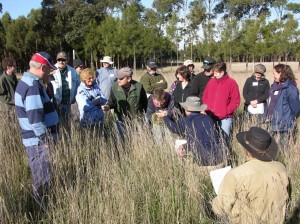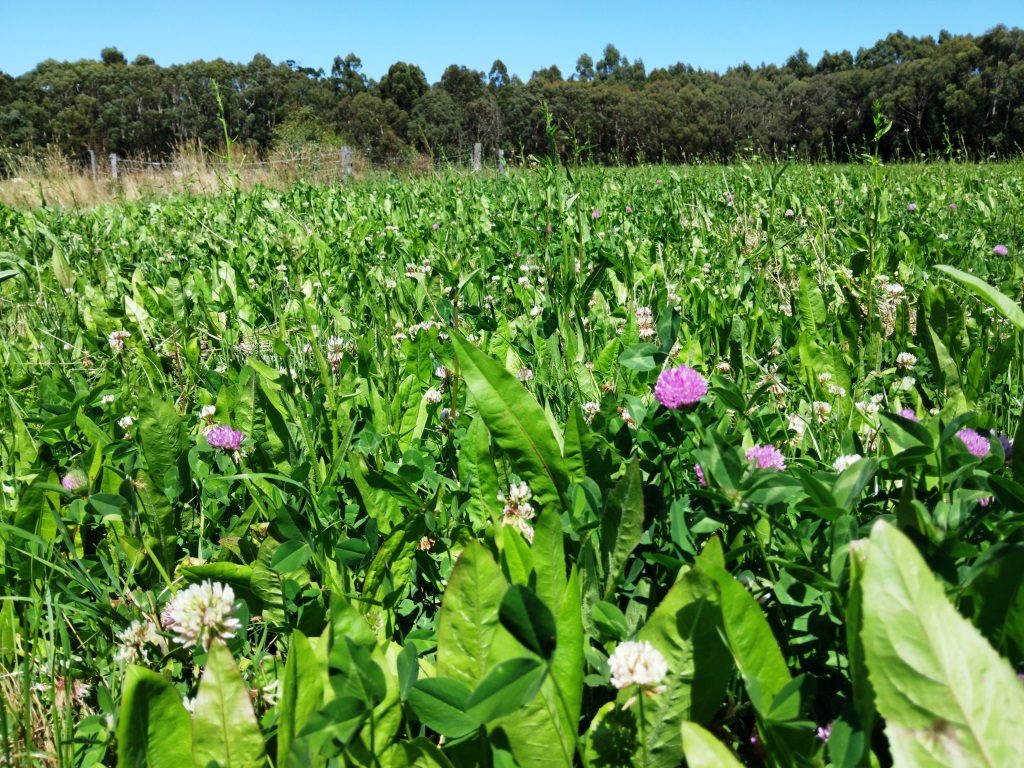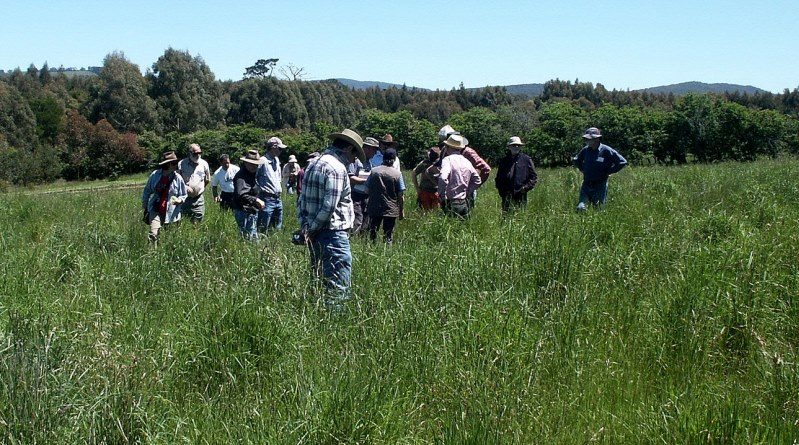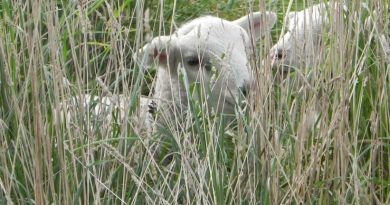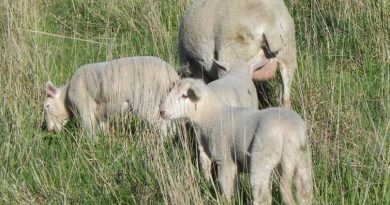Visit us
Moffitts Farm is available to visit by arrangement.

Comfortable Farming workshops, run by Patrick and his daughter Julie (both agricultural scientists) describe and demonstrate how comfortable farming is undertaken through an on-farm presentation and farm walk. Presentations are tailored to suit and meet the knowledge and interest backgrounds of participants:
For livestock farmers, the emphasis is on technical and practical issues associated with pasture species, grazing management methods, soil health, fertilisers, livestock health, greenhouse emissions reduction, climate variation resilience, minimising costs and capital, simplifying work load, and minimising low rainfall year stress. Years of records showing soil analyses, individual paddock livestock carrying capacity, pasture persistence, and livestock health provide a data background to demonstrate what happens when grazing systems change.
For intending farmers, the emphasis is placed on farm planning to set up connections between pastures, ecosystem services and climate resilience. This involves setting up the farm’s natural and pastoral resources to be a low input, low cost, low greenhouse gas emissions, low stress business or lifestyle. Planning for conservation covers establishment of biodiversity corridors, farm timber plantations and riparian reserves. Combined they make a farm a pleasure to own and operate. The common threads associated with different farming methods such as biological, organic, holistic, and agricultural science are explored so participants have a more informed perspective about the direction they may take on their own farms.
For non-farmers, people who are interested in farming methods, the workshop concentrates on demonstrating the connections between pasture, livestock, forestry, biodiversity corridors and ecosystem services, greenhouse gas emissions reduction, livestock welfare and healthy food. After starting on a farm plan to improve the farm environment in conjunction with livestock production in 1986, Moffitts Farm has the evidence in its physical resources and data to show that farming and improving ecosystem services are not only compatible but are synergistic, that is, each improves the other. Participants have the opportunity to hold and smell healthy pasture soil, walk through biodiverse pastures, conservation corridors and farm forests and ‘talk’ to content livestock that are happy to mix with them.
Workshops are conducted with a minimum of 8 people and a maximum of 20 and are often undertaken in conjunction with landcare, education and farmer groups. They usually run for three to four hours. There is an opportunity to conduct additional tutorials for workshop participants who want to explore opportunities for their own farms and can bring with them details of soil tests, pasture species, paddock sizes etc. Price for the workshop is negotiated based around time needed and if a lunch is required.
Care farming
Small groups of residents from an aged care facility have enjoyed visiting the farm. Asylum seeker families also visited, based on Julie’s interest in ‘care farming’- providing health, social or educational care services for vulnerable groups of people. For information on Care Farming, see the UK website: http://www.carefarminguk.org/
To discuss visiting arrangements contact:
- Patrick Francis 0418 351 567, patrickfrancis345@gmail.com
- Julie Francis, juliefrancis@moffittsfarm.com.au for Care Farming opportunities

